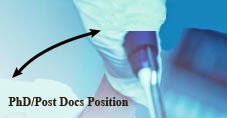WHY STUDY IN EUROPE
There are more than four thousand higher education institutions in Europe, from top-level research establishments to small, teaching-focused colleges. Europe itself is no less diverse, extending from the Arctic Circle to the coast of Africa, where tiny principalities sit side-by-side with many of the world’s leading economies.
A fascinating destination, but which country should you goes to? Which university should you choose? What do you need before you leave? What will happen when you arrive? These are just some of the questions you’re probably asking yourself already.
Here we provide some information on some European countries, their universities and what it takes to live and study in them.
Use this site to find the university that suits you best. A well-informed decision will make your time abroad even more valuable.
We provide information about this following Countries and Universities.
| Germany | Norway |
| Finland | Sweden |
| Belgium | Italy |
| Austria | Denmark |
Europe offers career opportunities on a global scale. The globalization of European business and the introduction of flexible labor policies have resulted in European organizations stepping up to the plate and successfully competing with US and Asian businesses in the global marketplace. This development, together with the enlargement of the EU, means that there has never been a better time to make the career move to Europe. And working in Europe will guarantee you experience a diverse and multicultural workplace. Working within an organization where people come from different cultural and educational backgrounds is incredibly stimulating. With so many cultures across the continent the only problem you will have is choosing which country to work in Europe.
But no matter what country you select, Europe always offers you a very exciting working environment. More than other parts of the world, Europe depends on the brains and the creativity of its people to guarantee its future prosperity and its model of society. It is that creativity, coupled with an entrepreneurial spirit within an innovation-friendly framework, which gives Europe an advantage in a highly competitive global economy.
Here we provide some Information about work permits for European Countries and some other Countries like Canada, New Zealand and Australia.
RESEARCH IN EUROPE
Europe is a better place to live and work, improving Europe's competitiveness, growth and job creation while tackling the main current and future societal challenges. To do so, the Directorate-General for Research and Innovation supports research and innovation through European Framework Programmes, coordinates and supports national and regional research and innovation programmes, contributes to the creation of the European Research Area by developing the conditions for researchers and knowledge to circulate freely, and supports European organizations and researchers in their cooperation at international level.
We provide recent vacant positions PhD/Post Docs in European Universities.






